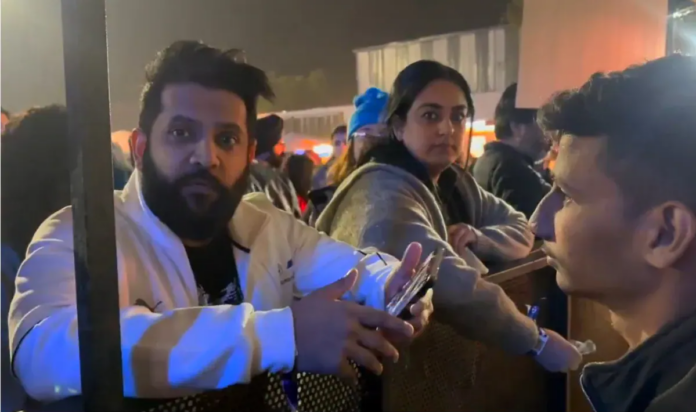A recent incident at the Bryan Adams concert in Gurugram, organized by Zomato, has stirred allegations of corruption and malpractice. An attendee claimed that food and beverage counters only accepted cash payments to purchase coupons under the guise of “internet issues.” This has sparked concerns over potential tax evasion and ethical violations.
The Incident: Cash-Only Coupon Mandate
The controversy erupted when a concert-goer revealed that he was unable to use digital payment methods for purchases at the event. He stated that the staff insisted on cash payments, forcing attendees to buy prepaid food and drink coupons. When questioned about the reason for the cash-only rule, staff members allegedly cited “internet connectivity problems” as the issue.
The attendee noted that when he threatened to go live on social media to expose the matter, the card machines mysteriously became operational within minutes. This abrupt resolution has led many to believe the supposed technical glitches were premeditated to enable cash transactions and evade taxes.
![]()
Public Reactions and Zomato’s Silence
The incident has generated significant backlash on social media, with the public divided over the allegations. While many criticized Zomato for the alleged malpractice, a section of the audience urged caution, emphasizing the need for a detailed investigation before drawing conclusions.
Supporters of the Attendee
Many social media users backed the attendee, pointing out that cash-only systems are often a red flag for tax evasion. Some accused Zomato of unethical behavior, urging authorities to investigate the matter and ensure transparency.
Defenders of Zomato
Conversely, some defended Zomato, arguing that technical issues are common in large-scale events and may not always indicate foul play. They called for patience until Zomato provides an explanation.
Legal and Ethical Implications
The incident raises significant questions about corporate accountability in event management. India’s push for a cashless economy relies heavily on businesses embracing digital payment systems. Cash-only transactions at such large events contradict this goal and may contribute to revenue discrepancies and potential tax evasion.
From a legal perspective, businesses must comply with tax regulations, ensuring transparency in their financial operations. Ethically, such practices, if true, erode consumer trust and tarnish a company’s reputation. Critics argue that high-profile companies like Zomato should prioritize accountability and fairness to maintain their credibility.

Broader Issue of Tax Evasion in Events
This controversy sheds light on a larger problem in India’s event management sector, where cash transactions remain prevalent. Experts believe such practices undermine the government’s efforts to digitize the economy. The lack of stringent oversight at events enables businesses to exploit loopholes, resulting in potential revenue loss for the government.
By implementing stricter regulations and promoting digital transactions at events, authorities can curb such practices and ensure compliance with tax laws. Meanwhile, companies must adopt ethical practices to build and retain consumer trust.
Zomato’s Reputation Hinges on Transparency and Accountability
This incident serves as a wake-up call for businesses to uphold ethical standards and transparency in their operations. For Zomato, addressing the allegations promptly and providing clarity is crucial to maintaining its reputation and consumer trust. The company’s response will likely determine how it navigates this controversy and its long-term credibility in the market.

